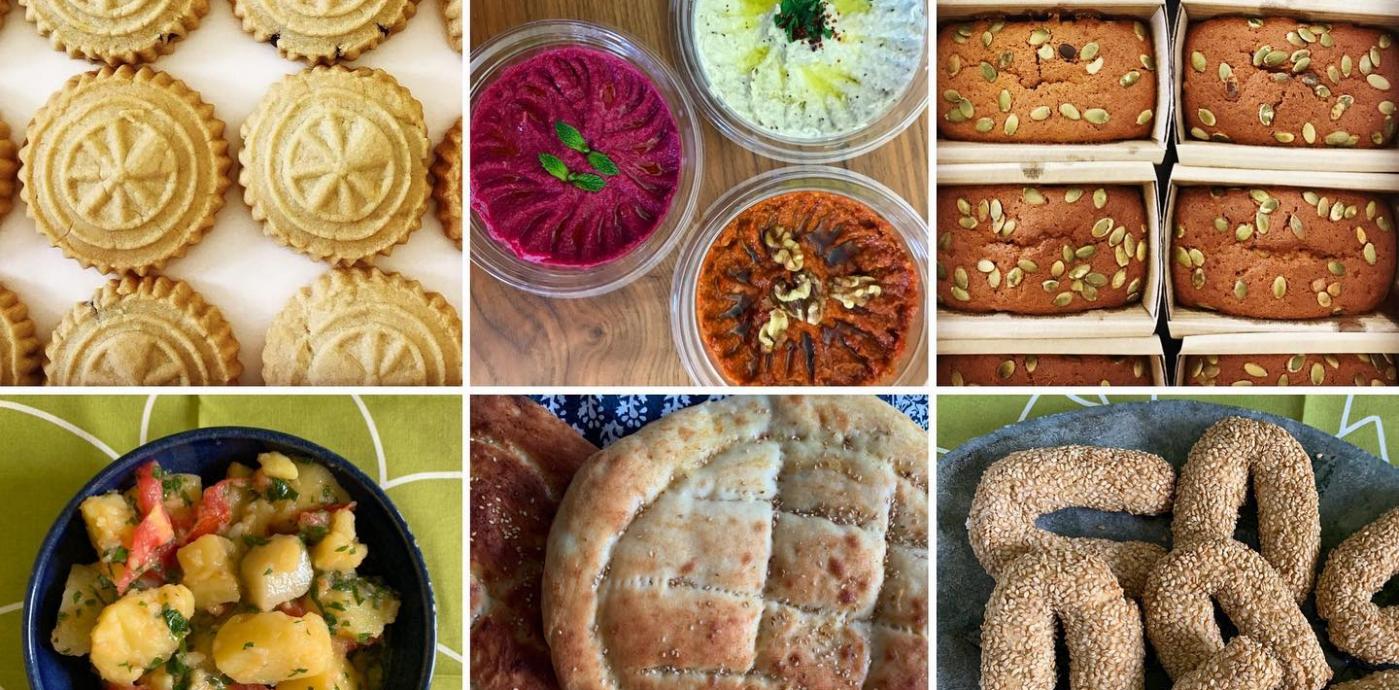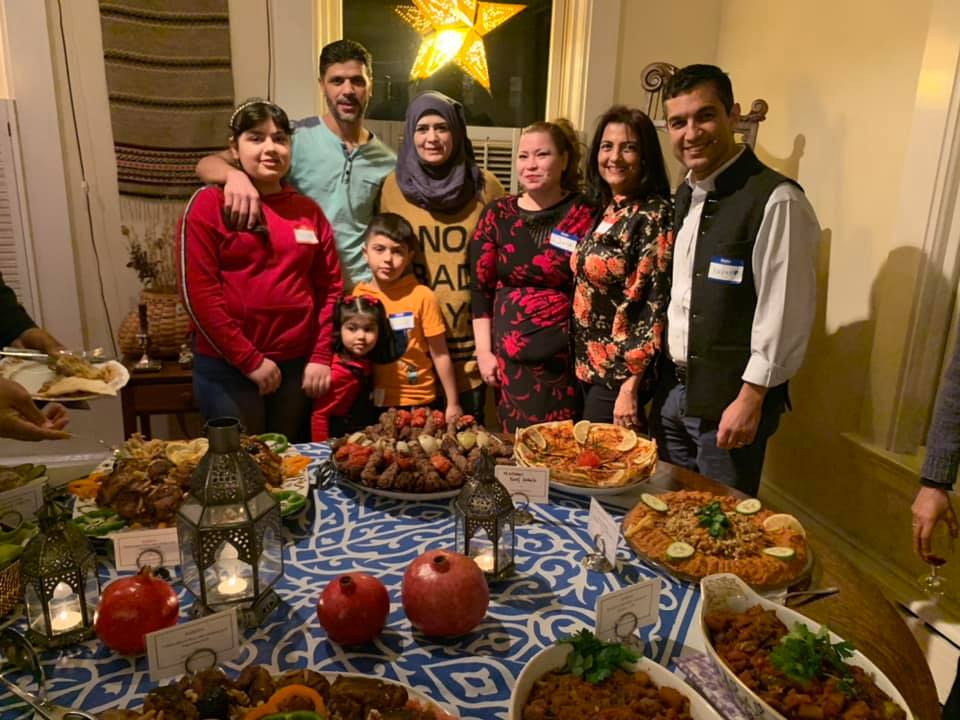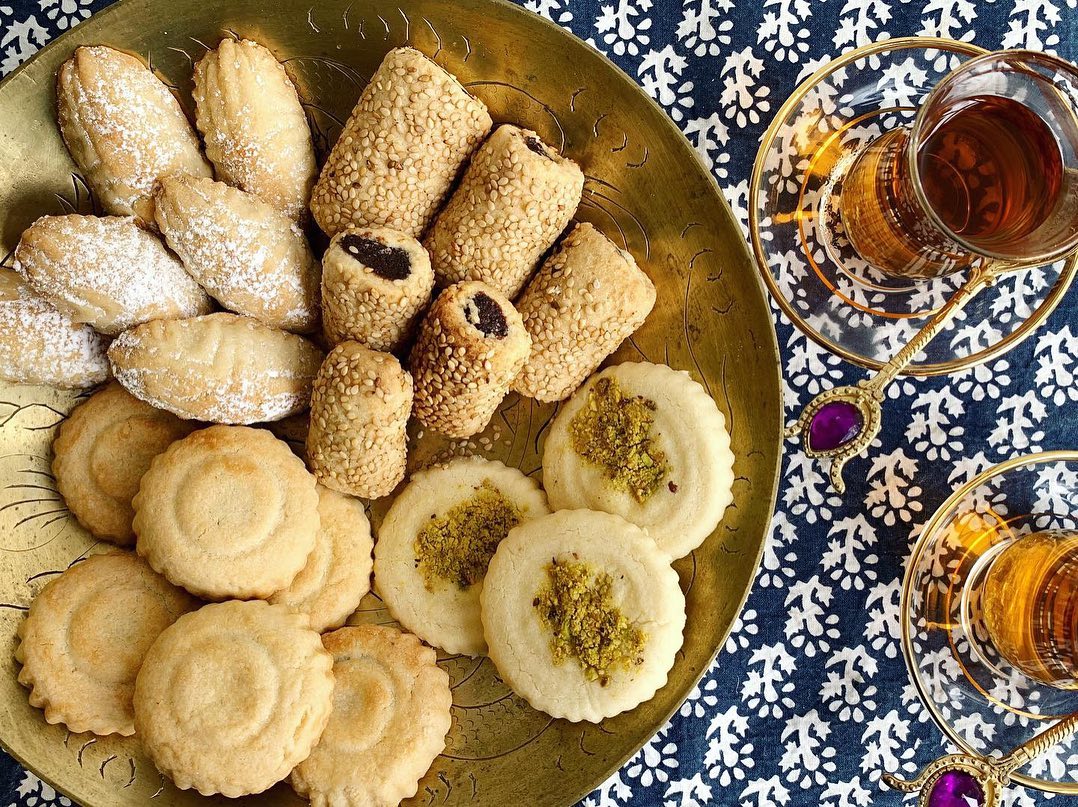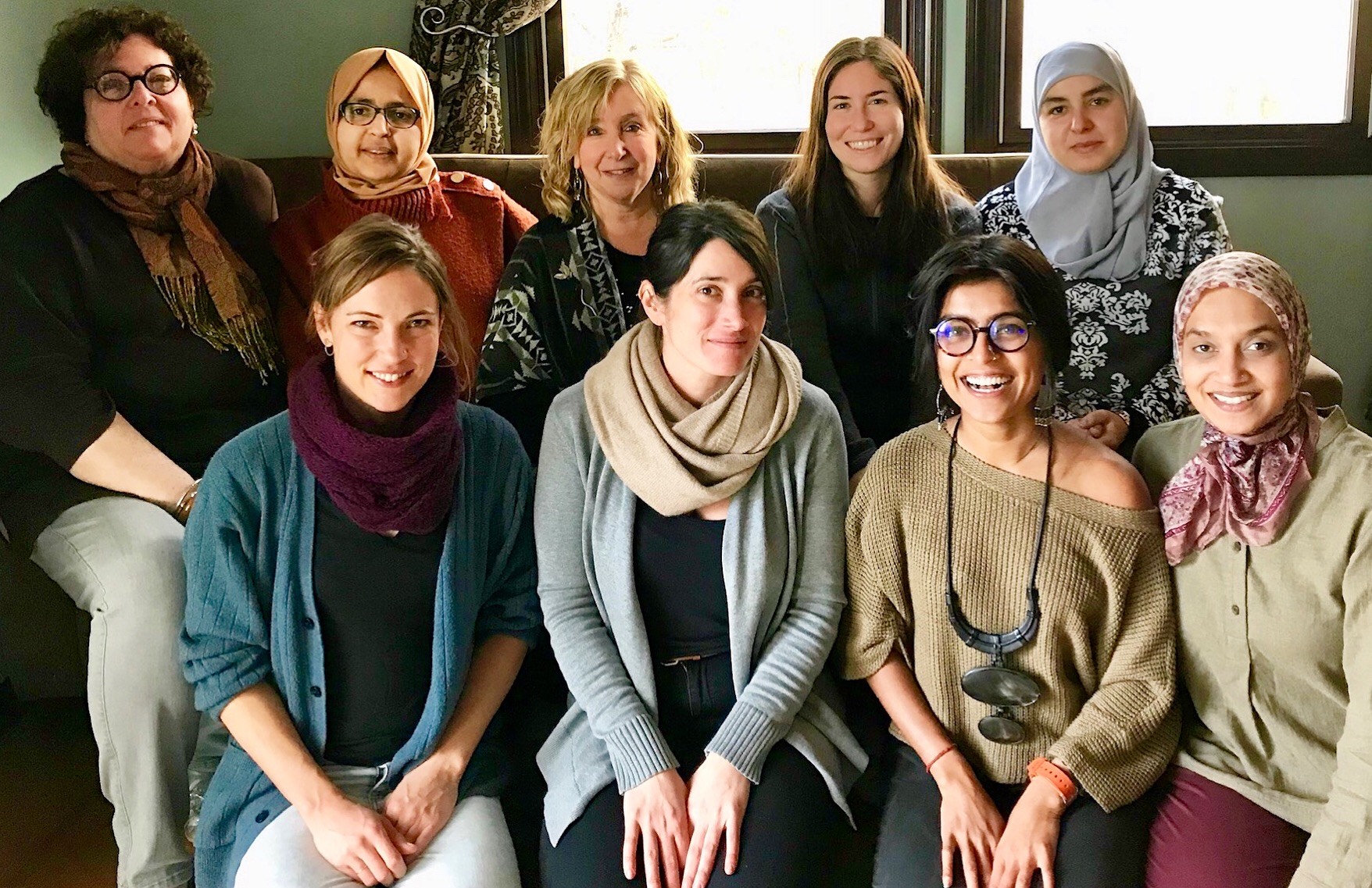At Oldways, we believe food is heritage’s greatest gift of all. Our vision is a healthier, happier life through cultural food traditions, so we were thrilled to learn about the work of Sanctuary Kitchen in New Haven, Connecticut.
Sanctuary Kitchen employs refugee and immigrant chefs from around the world. The chefs share their cultural traditions with the broader community by offering cooking classes, supper clubs, catering services, and more. “We believe that sharing a meal and personal stories is a delicious opportunity for cultural exchange,” explains the Sanctuary Kitchen website. We caught up with Sumiya Khan, MS, RD, co-founder of Sanctuary Kitchen, to learn all about this exciting work. (The Q&A below has been edited and condensed).
Q: One of Sanctuary Kitchen’s goals is to “cultivate authentic connections between local residents and new arrivals.” How do you accomplish this?
A: These connections are made through the culinary events we host. We believe that sharing a meal and personal stories is a strong and meaningful gesture of welcome and acceptance, an intimate space in which simple and genuine cultural exchanges can occur. Sanctuary Kitchen chefs teach cooking classes or share a meal they’ve prepared, and they will share their journey stories and cultural histories while doing so. The chefs and participants engage with each other while cooking or sharing a meal together-and learn about each other in the process.
Participants and chefs often continue their conversations and new relationships after the event ends. They find that their children attend the same schools, that they live near each other, or that they can help or support each other in different ways. It is not uncommon to be invited to a chef’s home for dinner soon after!
Q: How does you background as a dietitian factor into your vision for Sanctuary Kitchen?
A: Sanctuary Kitchen started as passion project, and is the synthesis of my upbringing as the daughter of immigrants, work in social justice, and passion for food and nutrition. I have worked in community and public health nutrition for over 15 years.
My education and experience have shown me that foods and dietary practices that honor one’s heritage and cultural traditions are most often inherently wholesome. I often counseled patients to eat what their grandparents ate-most likely it included whole grains and lots of fruit and vegetables. These practices are being lost with modern food production practices and the exporting and adaptation of American food and culture.
One of the most frequent questions that Sanctuary Kitchen chefs are asked are, “What American foods do you enjoy?” or “What local restaurants do you frequent?” The response is that they rarely eat out, and they prefer to make their traditional foods at home. This is a practice that we try to honor and maintain at Sanctuary Kitchen.
My education and experience have shown me that foods and dietary practices that honor one’s heritage and cultural traditions are most often inherently wholesome.
Q: What are the future goals of Sanctuary Kitchen? Where would you like to go from here?
Our vision is to enhance the culinary skills of refugees and immigrants in a supportive environment that honors story and diverse cultural traditions, fosters community and understanding, offers professional development, and generates economic success in the most delicious way possible. In addition to our culinary events, we offer a culinary training program through our catering social enterprise. Chefs who are employed in catering receive culinary and professional training in order to obtain and be placed in long-term employment in the food industry. Chefs also have the option to move up in leadership within Sanctuary Kitchen, or receive training and support to start their own food business.
If our vision is realized, we expect effects individually, locally, and beyond in the following areas:
- The creation of sustainable employment opportunities for refugees/immigrants-particularly women with little to no workforce experience-both through professional culinary training and through relationships with industry partners to ensure successful placement and outcomes for participants.
- Increasing the number of successful refugee/immigrant-run food businesses statewide, bringing innovative and interesting cuisine to New Haven and Connecticut, and promoting equitable economic development.
- Becoming a replicable, national model for other cities to use food and local food systems as a tool for cultural exchange and integration, professional development, and income generation for new refugees and immigrants.
- Increasing understanding of and appreciation for refugee and immigrant cultures, experiences, and skills. This can lead to positive policy change in Connecticut and nationally. What can be viewed as a “problem” that needs to be curtailed can be transformed into sources of community strength, economic development, creativity, and innovation.
Q: What is a cooking technique, or recipe, you have learned from the chefs that you hadn’t used before?
A: There are a lot! But my three favorites are Afghan Mantu, Afghan Aushak, and Syrian Ma’amoul. Mantu and Aushak are dumplings filled with meat or leeks, respectively, and then topped with a tomato-based bean or lentil sauce and drizzled with a garlicky-mint yogurt. The dumplings are intricately made by hand, then steamed or boiled. So delicious and a customer favorite!
I love to bake, so learning how to make Ma’amoul was particularly satisfying. Ma’amoul are shortbread cookies, often made with semolina, that are filled with spiced dates or nuts, and then shaped using hand-carved wooden molds that leave a beautiful pattern. They are often served with Arabic coffee.
Q: What is the most valuable thing you have learned since being involved with Sanctuary Kitchen?
A: The most valuable lesson I have learned is that of resilience. The chefs I work with have experienced immeasurable loss and horrible trauma in the countries they were forced to leave. Yet they continue to smile, give, and share their food and culture. They exhibit immense generosity and patience despite having so little. They take pride in their work, and are eager to contribute their skills in the communities they now call home.
Q: What is your favorite memory thus far working with Sanctuary Kitchen?
A: At one of our cooking classes a few months after our launch, our Arabic interpreter canceled last minute. The Syrian chefs teaching were extremely worried about proceeding without one, but did not really have a choice. They were tentative at first, but as the class proceeded, I could see their confidence building as they demonstrated cooking techniques and practiced the little English they knew.
They laughingly used body language and settled in cooking side-by-side with the participants. By the end of the class, everyone comfortably ate the food they made together, and chatted about their families and interests. After the guests left, the chefs declared proudly and with some marvel, “We did it!”
It was at that moment I knew that what we were doing together-the chefs, organizers and guests-worked,
and was so necessary in creating connections and opportunities for all those involved.
Join us for a free webinar with Sanctuary Kitchen
Learn to cook Afghan food with Sanctuary Kitchen chef Sharifa Zareen on November 18! REGISTER NOW
About Sanctuary Kitchen
Sanctuary Kitchen, a program of CitySeed, partners with immigrant and refugee chefs to build economic opportunity and authentic connections through food. We host culinary events and offer catering services led by refugee and immigrants. Sanctuary Kitchen Catering offers ready-to-eat, authentic, multicultural gourmet dishes and food products that provides employment, professional training and integration of refugees and immigrants in Greater New Haven.










Leave a comment